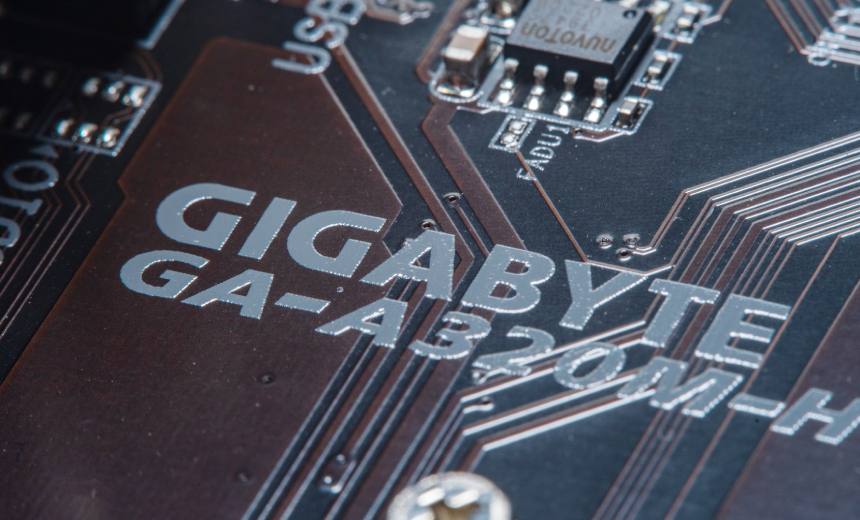Endpoint Security,
Governance & Risk Management,
Hardware / Chip-level Security
Serious Vulnerabilities in Gigabyte’s Firmware Allow Malware Uploads in System Management Mode

Multiple critical vulnerabilities have been uncovered in Gigabyte’s UEFI firmware, enabling attackers to gain nearly undetectable control over affected systems within the System Management Mode (SMM). The identified issues provide attackers with the capability to execute arbitrary code, thus undermining the integrity of the operating system and all associated security mechanisms.
The vulnerabilities, identified as CVE-2025-7026 through CVE-2025-7029, seem to replicate earlier flaws discovered in firmware by American Megatrends Inc., and these have now been confirmed to impact specific Gigabyte products. Notable disclosures were made by both Binarly and Carnegie Mellon University’s CERT/CC.
System Management Mode serves as a highly privileged execution domain within x86 processors operating below the operating system. By exploiting SMM, attackers can bypass OS-level security, disable essential protections such as Secure Boot and Intel BootGuard, and introduce stealthy firmware implants that are difficult to detect or eliminate. According to Binarly’s advisory, these vulnerabilities provide attackers with the means to corrupt SMM memory while executing code with Ring-2 privileges.
The root cause of these vulnerabilities stems from improper validation of data passed to System Management Interrupt handlers. Specific flaws identified include issues with unchecked register values leading to arbitrary memory writes that can be exploited, thereby granting attackers control over system settings relating to power and thermal configurations.
While exploitation of these vulnerabilities typically necessitates local or remote administrative privileges, successful attacks can be initiated while the operating system is booting, in sleep states, or even in recovery environments—situations where endpoint security solutions may not yet be active. This situation is particularly alarming for organizations operating on legacy systems that are often out of support and remain unpatched.
Gigabyte has confirmed that these vulnerabilities affect a range of Intel-based legacy platforms, including specific motherboard families, while newer models do not exhibit the same risks. Although BIOS updates are being released for supported models, end-of-life products will not receive automatic updates, and users are encouraged to engage with Gigabyte’s support for remediation guidance.
Organizations are advised to systematically check for updated firmware on the Gigabyte support site and to seek assistance from their OEM providers, primarily if they utilize end-of-life hardware. CERT/CC emphasizes these vulnerabilities pose real threats, facilitating stealthy system compromises that can persist unnoticed.
The recent findings underscore the urgency for organizations to enhance their security postures, particularly concerning firmware-level vulnerabilities. Enhanced validation practices throughout the firmware supply chain are recommended to mitigate potential security risks. The SMM attack surface remains attractive to adversaries due to its elevated privileges and its invisibility to the operating system.
Experts in the field, including Cobalt CTO Gunter Ollmann, highlight that vulnerabilities like these present significant risks, allowing adversaries to maintain control that bypasses conventional OS defenses. As this situation evolves, organizations must prioritize the incorporation of firmware-level security assessments within their broader cybersecurity strategies to safeguard against emerging threats. Regular updates and evaluations, particularly of legacy hardware, are essential for robust security measures in today’s increasingly complex threat landscape.
